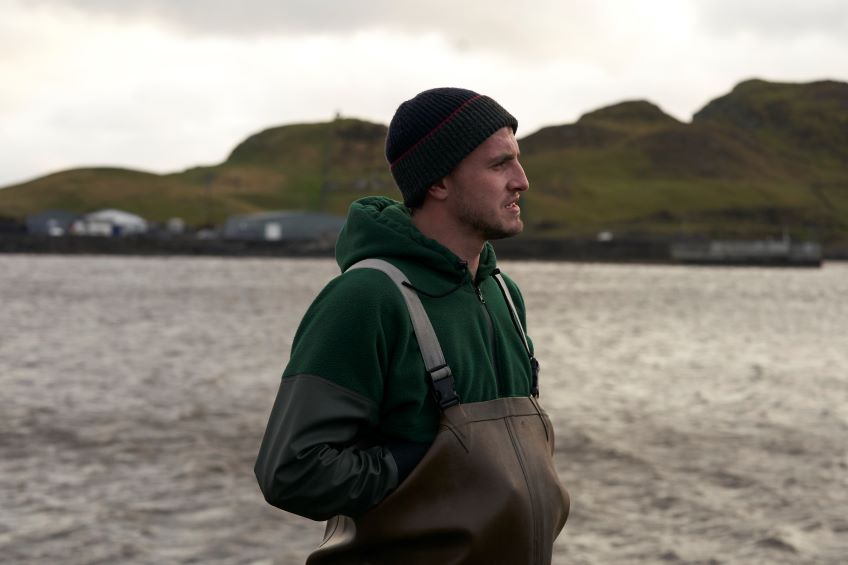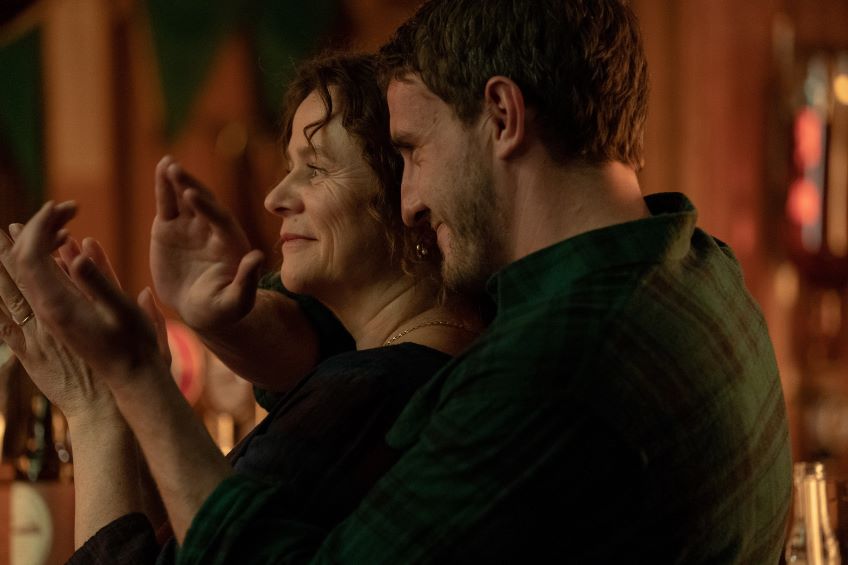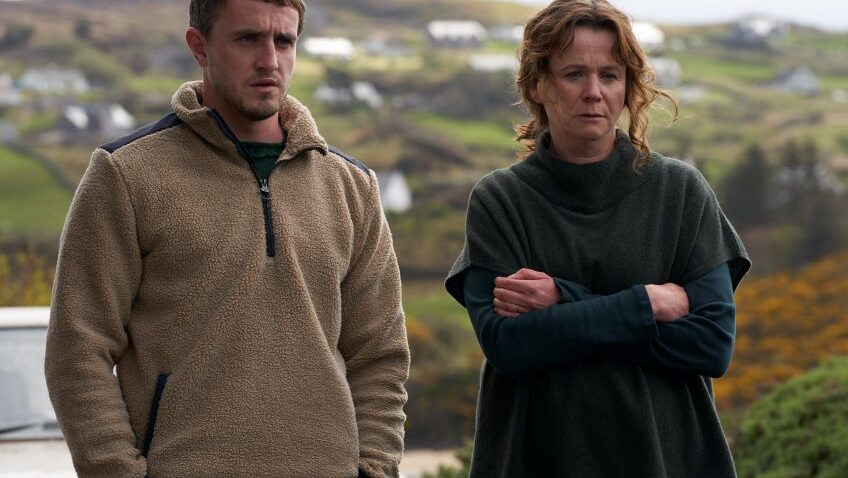Joyce Glasser reviews God’s Creatures (March 31, 2023) Cert 15, 101 mins.
With Paul Mescal arguably the hottest young actor around after his Oscar nomination for Aftersun, and Emily Watson (Warhorse, Angela’s Ashes, Hilary and Jackie) in top billing, first time directing team Saela Davis and Anna Rose Holmer, and the first-time scriptwriter Shane Crowley lucked out with this nautical melodrama. Mescal is the actor of choice for playing flawed sons, husbands and fathers and Watson will forever be remembered for another seafaring melodrama, Breaking the Waves, which won the Grand Prix at Cannes in 1996.
Unfortunately God’s Creatures is not gripping like Lars Von Triers’ Breaking the Waves; nor inventive and stylised like Bait, Mark Jenkin’s innovative social commentary drama about a Cornish fishing village. Fisherman’s Friends has the advantage of being a “feel good” film based on a true story.
The first scene sets the stage for what follows. It is a panoramic shot of a seafood processing plant with aproned and bonneted women, and a few men, toiling over assembly lines of freshly caught fish that the audience will recognise. We buy it in fishmongers and in supermarkets ready to cook, and we take all the preparation for granted. The cold, the damp, the repetition, the drudgery and the smell are unleashed to immerse you in the atmosphere of the characters’ lives.
All this is great, but if you want the plot to kick in any time soon, you’ll have to be patient. Aileen O’Hara (Watson) only knows this life. She and her husband Con (Declon Conlon) used to have an oyster trapping farm, but it was abandoned when Con’s dad Paddy, (Lalor Roddy) became ill, and their only son, Brian (Mescal) disappeared seven years earlier. Since then, daughter Erin (Toni O’Rourke) has had a baby, and old Paddy has sunk into a vegetative state.

If life is not a barrel of laughs it gets a lot worse when the prodigal son returns.
That happens, highly symbolically, when Brian shows up out of the blue at the funeral of factory worker Mary Fitz’s (Marion O’Dwyer) son, who has drowned at sea. Keep that in the back of your minds, for the fact that sons (and husbands and fathers of course) drown at sea is as noteworthy as the fact that women like factory worker Sara Murphy (Aisling Franciosi) are abused by their cheating husbands, raped in bars and not believed. It’s a mix of neo-gothic, gritty realism and family melodrama.
When Brian shows up at the funeral, the family is guarded, except for Aileen, who is instantly tactile. She is not put off by the vagueness of his explanations. The important thing is he’s back – and he’s so good with old Paddy, and with Erin’s baby. When Brian announces he is going to restart the oyster trapping business, Aileen heralds a fresh start for the whole family.
The trouble is, despite certain similarities, Brian is no Heathcliff. He has not returned rich and independent, but with just the shirt on his back so he has no money to restart the farm. Aileen does what any trusted and respected employee does, she steals oysters from the factory to kick start Brian’s business.
Sarah witnesses this but Sarah is a strangely ill-defined, underwritten, passive character to whom things happen. Until she isn’t. But when Sarah starts to make things happen, it’s too little, too late. She remains marginal to the film until, at the end, the camera focuses on her as if she were the protagonist escaping to freedom.
The action, and plot, as such, kicks into gear when Aileen takes Brian to the pub for an afterwork drink and leaves him there while she goes home for an early night. The last time she sees Brian he is flirting with Sarah at the bar.
When, shortly after that evening, Brian is accused of rape, and Aileen is forced to testify as a witness, she is confronted with a moral dilemma. Some of the best films ever made involve characters faced with moral choices, but this is not one of them.

Nothing is stronger than a mother’s love, and Watson makes us feel her pain. She is being torn apart as Mescal intelligently plays a manipulating, yet shallow man who lives in his own shadow. But real love is neither closing your eyes to your loved one’s problems nor condemning them to death in a summary execution. It’s asking hard questions and trying to help the person change, or at least, seek redemption. The most interesting thing about this movie is that it does not include that redemption.
As we’ve seen, Aileen is what we call morally conflicted. But she shouldn’t be, unless we are missing a big chunk of back story or a few scenes on the cutting room floor. As it is, it’s difficult to feel the requisite sympathy for her character and yet the film depends on it. Aileen should, you might think, be curious about her son’s sudden departure, seven years away and equally sudden, and silent, return.
If she isn’t, we are, particularly as the film has been crawling along at a snails’ – or oysters’ – pace for so long that we need some suspense. What about Sarah earning the long, Call Me by Your Name closeup shot on her face at the end by turning sleuth and starting to piece the past together? Sara certainly has the motive; and, having lost her job, she has the time.
You might argue that the filmmakers want a low key, slow burn film, not an action, mystery or monster movie. That’s fine, but by the time God’s Creatures starts to smoulder, we’re lost at sea.




